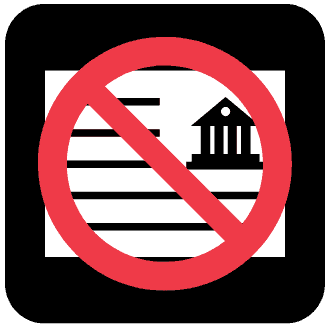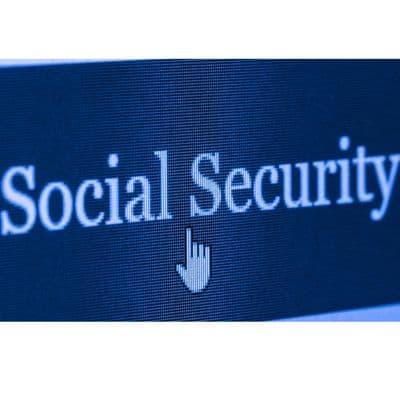
Bank drafts, sometimes referred to as bank checks or cashier’s checks, are a special form of a check in which the funds are guaranteed and held by the bank. This makes them a preferred payment source for big-ticket items, such as down payments on homes or cars, in which funds must be 100% secure.
But if a bank draft is not cashed right away, will it eventually expire?
Bank drafts do not have an expiration date. However, the receiving institution has the prerogative as to whether or not it will accept the bank draft, with chances of rejection greater the further away the draft gets from its date of issuance.

Although most bank drafts can be cashed any time after they are issued, it is best to check your financial institution’s policies. As bank drafts are widely considered “as good as cash,” some banks will have a validity period on their bank drafts to help prevent from loss, theft, and fraud.
Below, we’ll discuss the reasons why bank drafts cannot expire in detail, as well as why banks may not accept a bank draft regardless of the nonexistent expiry date.
Will a Bank Draft Expire?
Bank drafts will generally not expire. This is because a bank draft is a form of a prepaid check that works similarly to cash, using the following process:
- A bank client goes to their institution and orders a bank draft.
- The bank draft verifies that there are sufficient funds in the client’s account or that the client is offering sufficient cash to cover the value of the bank draft.
- Once verified, the funds are taken from the client and placed in a special account that is the bank’s property.
- The bank issues a bank draft to the specified payee.
Once the bank draft has been issued, the funds are not used by the bank in any way. Therefore, as long as the bank remains solvent and the issued currency is recognized as a form of payment, the bank draft will not expire, with funds sitting in an account with the issuing bank until requested by the payee.
What Happens If a Bank Draft Is Not Cashed?

Although a bank draft does not expire, per se, there are some situations in which complications will arise if the bank draft is not deposited within a reasonable period.
The Receiving Institution Rejects the Bank Draft
Ultimately, whether or not the bank draft is accepted is the prerogative of the receiving institution. Just as a bank has the right to refuse or confiscate cash that it suspects to be counterfeit, so too does the bank have the prerogative to reject a bank draft that it suspects to be lost, stolen, forged, or fraudulent in any way.
The longer the interval between the issuance of the bank draft and deposit, the more suspicious the receiving institution will become. Most payees demand bank drafts to guarantee they will have immediate access to funds without going through the process of clearing bounced personal checks or having credit cards rejected.
Therefore, sitting on a bank draft for an extended period is inherently contrary to the purpose of the bank draft, which will raise the suspicions of the receiving institution. If months have passed before the deposit, they may either contact the issuing bank for validation or simply reject the bank draft altogether.
Foreign Banks and Bank Draft Rejection
An important note within this topic is that foreign banks nearly always reject bank drafts after six months. Bank drafts are valuable for foreign transactions for a couple of reasons, both of which help secure immediate access to foreign currency:
- They allow merchants to receive guaranteed payment in their native currency when selling to foreigners, typical when someone is buying a home in a different country.
- They allow tourists to “pay themselves” when traveling abroad, guaranteeing the conversion rate at home, and then cashing the bank draft in the local currency upon arrival to their destination.

As with anything pertaining to international commerce, the threat of fraud is heightened. So, when receiving bank drafts outside of six months from issuance, foreign banks will generally reject the draft.
To avoid the possibility that a bank draft is rejected, either at home or abroad, it is always best practice to issue it as close to the date of its expected deposit as possible.
The State Starts the Escheatment Process
In a less common scenario, the state may start escheatment. This is the process in which the government takes over inactive bank accounts.
The period of inactivity must be very long, typically three to five years, with no success in reaching the account holder, before funds are turned over to the state. In the case of bank drafts, death of the payee before cashing the bank draft is the most likely reason that escheatment may occur.
What Is a Validity Period for a Bank Draft?
Although bank drafts do not generally have expiration dates, select institutions may include validity periods on their bank drafts. This validity period will be for a set period, usually three or six months. If attempting to cash the bank draft outside of this period, the depositing bank may:
- Contact the issuing bank to re-validate the bank draft
- Request that a new bank draft be issued
To help enhance the security of your deposited funds, it may be worthwhile to check with your bank to see if your bank draft can be issued with a specified validity period.
Can a Bank Draft Get Canceled?

When a bank draft is created, the funds essentially become the property of the bank. This is what guarantees the funds, as payees view banks as far less likely to default than individuals or businesses. This is one of the primary reasons bank drafts basically never expire.
As a result, canceling a bank draft can be exceptionally difficult, as the funds are no longer the payor’s property once the draft is created. For example, if you were to create a bank draft for a down payment on a house and were to decide, later that day, that you no longer wanted to buy the house, there is really no way to stop payment.
Conclusion
Bank drafts generally do not expire. Considered a secure payment method that is “as good as cash,” the funds will sit in a special account until drawn on by the payee.
However, the acceptance of bank drafts is the prerogative of the receiving institution, with the likelihood of rejection greater the longer the payee waits to make the deposit.
Geek, out.





![Can Banks Legally Ask Where You Got Your Money? [The Truth]](https://thefinancialgeek.com/wp-content/uploads/2022/08/Featured-Image-37.jpg)
![Why Exactly Are Banks Closed On Sundays? [In the US]](https://thefinancialgeek.com/wp-content/uploads/2022/05/Why-Do-Banks-Close-on-Sunday-1.jpg)